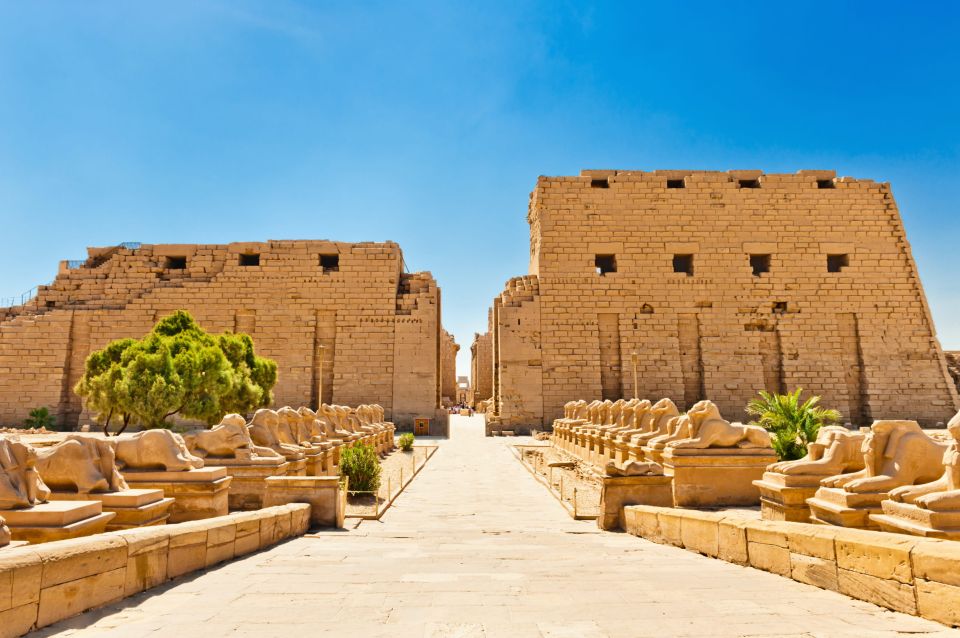Karnak is an extraordinary complex of sanctuaries, kiosks, pylons and obelisks dedicated to the Theban triad but also to the greater glory of pharaohs. The site covers more than 2 sq km; it's large enough to contain about 10 cathedrals. At its heart is the Temple of Amun, the earthly 'home' of the local god. Built, added to, dismantled, restored, enlarged and decorated over nearly 1500 years, Karnak was the most important place of worship in Egypt during the New Kingdom.
The complex is dominated by the great Temple of Amun-Ra – one of the world's largest religious complexes – with its famous hypostyle hall, a spectacular forest of giant papyrus-shaped columns. This main structure is surrounded by the houses of Amun's wife Mut and their son Khonsu, two other huge temple complexes on this site. On its southern side, the Mut Temple Enclosure was once linked to the main temple by an avenue of ram-headed sphinxes. To the north is the Montu Temple Enclosure, which honoured the local Theban war god.

The 3km paved avenue of human-headed sphinxes that once linked the great Temple of Amun at Karnak with Luxor Temple is now again being cleared. Most of what you can see was built by the powerful pharaohs of the 18th to 20th dynasties (1570–1090 BC), who spent fortunes on making their mark in this most sacred of places, which was then called Ipet-Sut, meaning 'The Most Esteemed of Places'. Later pharaohs extended and rebuilt the complex, as did the Ptolemies and early Christians. The further into the complex you venture, the older the structures.
The light is most beautiful in the early morning or later afternoon, and the temple is quieter then, as later in the morning tour buses bring day trippers from Hurghada. It pays to visit more than once, to make sense of the overwhelming jumble of ancient remains.
